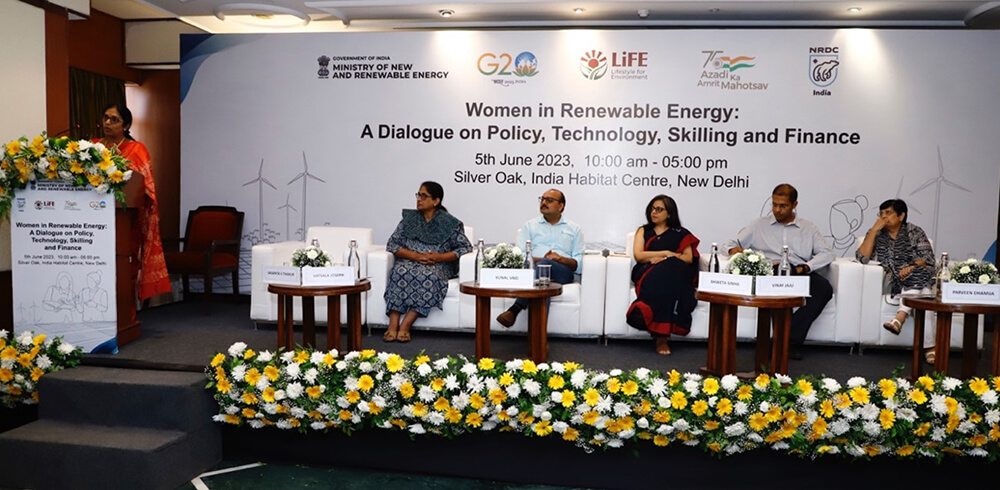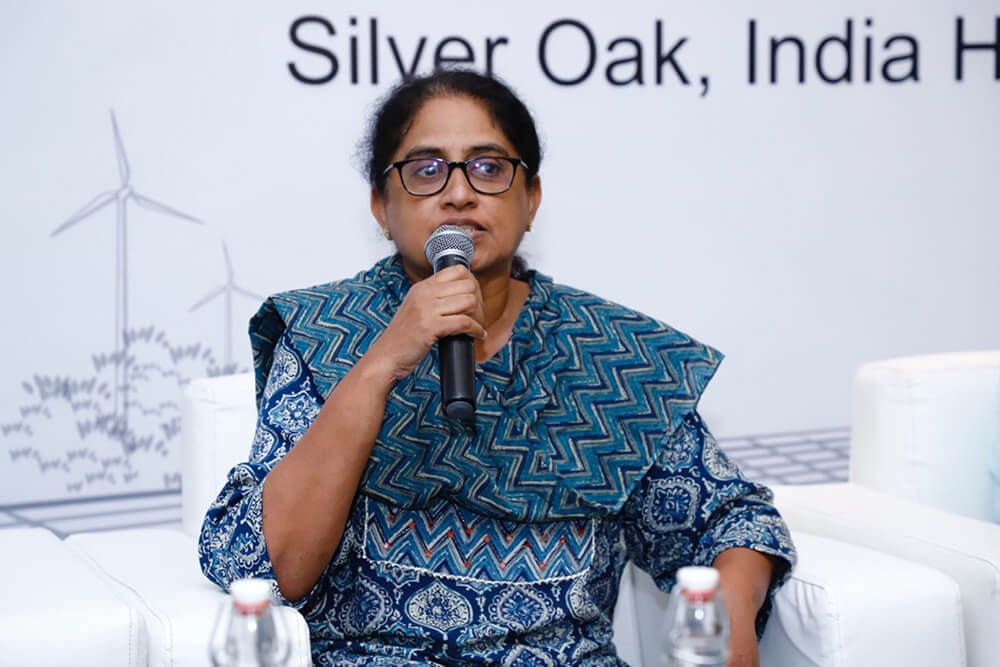
India has made tremendous progress in creating new pathways for clean energy transition through supportive policies, enabling regulatory frameworks, and ambitious climate targets for the coming decades. The theme of India’s G20 Presidency ‘Vasudhaiva Kutumbakam’ or ‘One Earth· One Family · One Future’ closely ties with LiFE (Lifestyle for Environment). The mission LiFE, which was launched by Hon’ble Prime Minister of India Shri Narendra Modi at the COP26 climate summit in Glasgow, is turning into a global mass movement to nudge individual and community action to protect and preserve the environment. Women, with access to the right mix of policy support, finance, and technology, will be central to advancing the goals of the mission LiFE not only in India but around the world.
There is growing evidence to suggest that women are disproportionately affected by the impacts of climate change. At the same time, women are more effective in bringing about change at the grassroot level through community engagement and household level action. Developing women-centric policies and implementation frameworks should be a central focus of climate solutions. This can potentially unleash positive changes across all aspects of a women’s life – from energy access to better health, from resource governance to community resilience. On the technology front, climate-friendly and clean energy technologies, including Distributed Renewable Energy (DRE) solutions, are important contributors in building resilience for communities, especially in rural areas where availability and quality of power remains a challenge.
The Ministry of New & Renewable Energy (MNRE) under its “Women in Renewable Energy” initiative aims to bring women at the forefront of the clean energy transition. It strives to build a synergistic partnership between women and renewable energy by enhancing employment opportunities for women in the renewable energy sector, as well as improve their socio-economic status through focused design and deployment of climate-friendly solutions.
With this backdrop, MNRE in association with NRDC India, on World Environment Day 2023, organised a convening ‘A Dialogue on Policy, Technology, Skilling and Finance’, with women leaders and stakeholders across union ministries, state nodal agencies, grassroots organisations, technology-use enablers, and financial institutions, to:
- Learn from the experience of women leaders about on-ground implementation and use of renewable energy technologies.
- Understand the pivotal role of women in the renewable energy value chain, and how their increased participation through supportive polices, innovative financial mechanisms, and capacity building could impact long-term energy security in the country.
- Identify challenges and potential finance, technology and skilling related interventions to scale up implementation of women-led climate-friendly solutions.

Vatsala Joseph, CEO, Shakti Sustainable Energy Foundation, participating in the session ‘Identifying Pathways for Skilling and Capacity Building’ at the event said‘ “Besides providing technical training, soft skill training and access to micro finance, it is necessary to encourage women and girls to pursue business and employment opportunity. Philanthropies can help bridge these gaps by investing in women centric skill development programmes; building women-led clean energy enterprises; creating mentorship and networking opportunities; addressing social and cultural barrier; and supporting research and evidence building.”
This session was moderated by Dr Vasanta V Thakur, Scientist E, MNRE with panellists Ms. Vatsala Joseph, CEO, Shakti Sustainable Energy Foundation; Shweta Sinha, Chief Program Lead, IT & Digital Products, Dharmalife; Dr Parveen Dhamija, Advisor, Skill Council for Green Jobs; Vinay Jaju, Managing Director, SwitchON Foundation; Kunal Vaid, Director, Resham Sutra Pvt. Ltd. The panel assessed the existing gaps and skilling opportunities across the renewable energy value chain and identify future course of action for enabling a holistic skilling ecosystem to bolder RE adoption.
